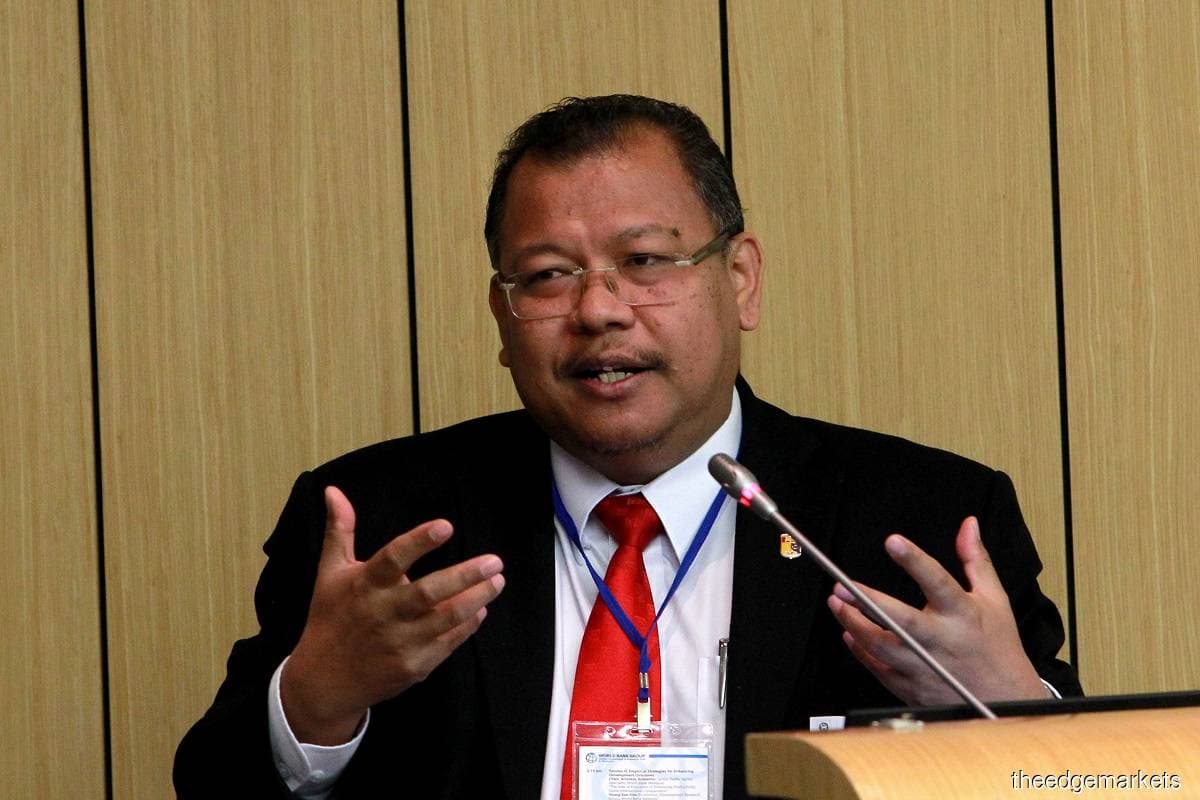
KUALA LUMPUR (June 17): To prepare for a new economic landscape post-pandemic, the government should prioritise its role as a market facilitator as opposed to a market player, with the adoption of "private first" policy to encourage a competitive market, according to the Economic Action Council (EAC) Secretariat.
EAC executive director Prof Tan Sri Dr Noor Azlan Ghazali said the idea is to ultimately create a healthy market to encourage private sector innovation and a corporate shared value (CSV).
"This recommendation is to look at the role of the government to be more primed as market facilitator rather than to be one of the players themselves. We do not want the government to be in the market competing with the private sector. Standard economics will say you are crowding out the marketplace.
"But I'm not saying this is a call for privatisation. What I'm saying is that wherever the private sector can deliver effectively at the right price and fair, and which can be accessible to everyone, then we can consider this 'private first' policy," he said during a media briefing today.
The EAC Secretariat held a media briefing today to present its report on the independent study it had conducted over the past year to look into the effects of the Covid-19 pandemic on the economy and possible policy responses for the government.
From the study, Noor Azlan said that the EAC Secretariat has come up with eight Reset Agendas for the government to implement after the Covid-19 pandemic in order to revitalise and reset the economy.
The eight Reset Agendas are: embracing the digital economy, promoting technology adoption and advancement, positioning for a shifting global landscape, promoting shared responsibility, good governance and sustainability, preparing future workforce, strengthening public deliveries and promotion of competitive market, attending vulnerable communities and mainstreaming the third sector, and corporate recovery and reform.
From this, the EAC Secretariat outlined 153 reset initiatives which will be presented to the EAC for the government's consideration and action.
Along with the "private first" policy, Noor Azlan maintained that the government's direct involvement in business should be strictly targeted at national strategic interests and addressing market failures.
He pointed to the concept of CSV, whereby the private sector strives for their private objectives while simultaneously achieving social objectives.
"CSV is a new model for the corporate sector. CSV requires private business models to be aligned with social objectives, meaning that when you make profits, at the same time your success also takes the nation to go forward," he explained.
The members of the EAC were announced in March by Prime Minister Tan Sri Muhyiddin Yassin.
Besides comprising the prime minister as chairman and International Trade and Industry Minister Datuk Seri Mohamed Azmin Ali as deputy chairman, the other members include Finance Minister Tengku Datuk Seri Zafrul Abdul Aziz, Minister in the Prime Minister's Department (Economy) Datuk Seri Mustapa Mohamed, Bank Negara Malaysia governor Datuk Nor Shamsiah Mohd Yunus, and economist Noor Azlan.
The council also consists of members from the private sector. They are The Edge Media Group chairman Datuk Tong Kooi Ong, MERCY Malaysia founder Tan Sri Dr Jemilah Mahmood, Celcom Axiata Bhd group chairman Tan Sri Jamaludin Ibrahim, Westports Malaysia Bhd chairman Tan Sri Gnanalingam and Sunway Bhd chairman Tan Sri Dr Jeffrey Cheah.